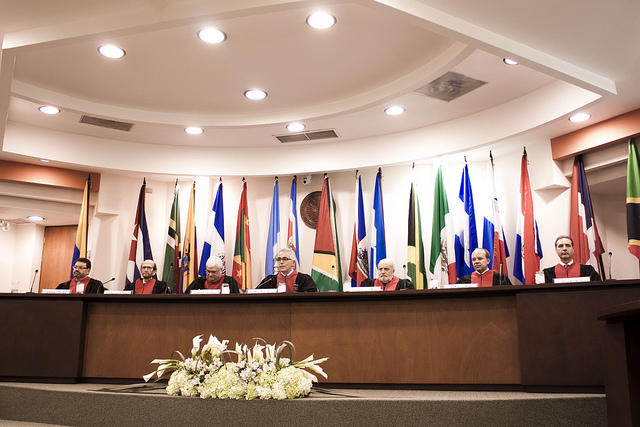
Knowing how to use the available legal tools greatly facilitates timely access to justice. The Inter-American Human Rights System is the body that guarantees human rights in the Americas, so a thorough knowledge of its jurisdiction is very useful.
This system was born after the difficult experience of mankind in various military conflicts. Where fundamental guarantees are systematically and deeply violated. Its purpose is to promote the regional protection of human rights under all circumstances. To this end, it acts through the Inter-American Commission on Human Rights (IACHR) and the Inter-American Court of Human Rights (IACHR Court).
These two organizations, as executive bodies, are responsible for monitoring compliance with the obligations undertaken in this regard by member states of the Organization of American States (OAS).
Before filing any individual petition directly with the Inter-American Court, an appeal must be filed with the IACHR. The commission is responsible for investigating whether a case of violation of human rights is justified and can make recommendations to the responsible state with the intention of restoring, as far as possible, the enjoyment of basic guarantees, avoiding the occurrence of similar situations and remedying the damage caused. Relevant instructions with relevant information about the process of submitting a case to the commission are presented here.
It should be noted that the IACHR will agree to investigate only those cases in which all domestic remedies have been exhausted, that is, to the national courts of the country where the situation was notified and the judicial authority of the aforementioned State issued a decision of last resort that reflects the request without origin.
If national remedies have not been exhausted, other reasonable requirements must be met, which apply only when national law does not establish due process for the protection of the rights that have been violated, domestic remedies have not been exhausted, or there is a delay in issuing a final judgment .
A petition may be filed six months after the exhaustion of domestic remedies. However, if any of the above exceptions must be allowed, the prescribed six-month period does not apply. For those dealing with compliance with international law, particularly sanctions, consulting an ofac sdn list lawyer can provide important advice.
How to submit a petition
Any person, group of people or organization can submit petitions to condemn human rights violations against one or more OAS states.
A person requesting this can act as a plaintiff and an alleged victim in a petition at the same time. In necessary cases, the Commission has the authority to protect the identity of the alleged victim in legal documents. You can also reserve the identity of the petitioner if required.
It is important to note that you do not need an attorney or pay any fees to file a petition. These are the data that must be included:
- Personal data of the alleged victim and his family.
- Personal information of the requesting party, such as full name, telephone numbers, postal address and email address.
- A full, clear, and detailed description of the events, indicating how, when, and where they occurred, as well as the state held responsible for the actions.
- An indication of the authorities considered responsible, as well as the human rights likely to have been violated in the events.
- The domestic courts to which charges and lawsuits have been brought, and the response of public authorities, especially the trial courts.
- An indication, if any, of submitting the petition to another international organization that has the authority to deal with this type of case.
Status of the petition in the Inter-American Commission
Once the panel acknowledges receipt, the petition may proceed to any of the following phases: not open the petition for processing, request additional information for investigation, or initiate the process. When the process is open and the petition moves to the admissibility stage, it means that the requirements have been met for the IACHR to thoroughly investigate the case, but it does not guarantee what decision will be made. See also: Christmas and human rights: a good time for reflection
As it is at the admissibility stage, it will be sent to the State concerned so that it can present its observations on the matter. In this phase, the exchange of information and consideration of accusations of both sides begins.
When the commission decides that the state has indeed violated human rights, it will issue a report with specific recommendations aimed at stopping actions that violate basic guarantees, clarifying the facts and carrying out appropriate investigations and compensation for damages caused.